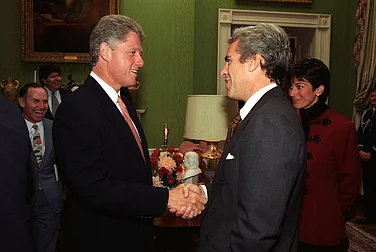The South Korean and US militaries said Friday they'll go ahead with large-scale annual military drills later this month despite North Korea's threats to take “unprecedently” strong action against such training.
It's likely that North Korea will respond to the upcoming South Korean-U.S. exercises with provocative missile tests and belligerent rhetoric because it views them as an invasion rehearsal.
In a joint press conference, the South Korean and US militaries said they will conduct the Freedom Shield exercise, a computer-simulated command post training, from March 13-23 to strengthen their defense and response capabilities
They said the training would focus on North Korean aggression, lessons learned from recent conflicts and the changing security environment.
“The Korea-U.S. alliance will prepare for the FS (Freedom Shield) training while maintaining a firm readiness against potential provocations by the North Korean military,” said Col. Lee Sung Jun, a spokesperson at the South Korea's Joint Chiefs of Staff.
Lee said the allies would respond to possible North Korean provocations with “an overwhelming capability.”
During the exercises, the allies will also conduct a number of large-scale joint field training, called Warrior Shield FTX, to improve their operation execution capabilities, said Col. Isaac L. Taylor, a spokesperson for the U.S. military. He said the field trainings will include a combined amphibious drill.
“The Warrior Shield FTX stands for the ROK-U.S. alliance's capability and resolution to ensure a combined defense posture to defend the ROK,” Taylor said, using South Korea's official name, the Republic of Korea.
South Korea and the United States have been expanding their military exercises in the face of evolving North Korean nuclear threats. Emboldened by its advancing nuclear arsenal, North Korea test-fired more than 70 missiles last year, the most ever for a single year, and several more this year. Many of the missiles tested nuclear-capable weapons designed to strike the U.S. mainland and South Korea.
North Korea has also threatened to use its nuclear weapons preemptively in potential conflicts with the United States and South Korea. The US military has warned the North that the use of nuclear weapons “will result in the end of that regime.”
In January, Defense Secretary Lloyd Austin said the US would also increase its deployment of advanced weapons such as fighter jets and bombers to the Korean Peninsula.
Last month, North Korea's Foreign Ministry warned the U.S. and South Korea would face “unprecedentedly persistent and strong counteractions” if they carry out their planned military drills this year that the North regards as “preparations for an aggression war.”
Later, Senior North Korean Foreign Ministry official Kwon Jong Gun said that the only way to reduce military tensions on the Korean Peninsula is for the United States to withdraw its plans to deploy strategic assets in South Korea and halt joint drills with its Asian ally. He said if the United States continues its “hostile and provocative practices” against North Korea, that can be regarded as a declaration of war against it.
North Korea has previously issued similar rhetoric in times of animosities with the United States and South Korea.





















